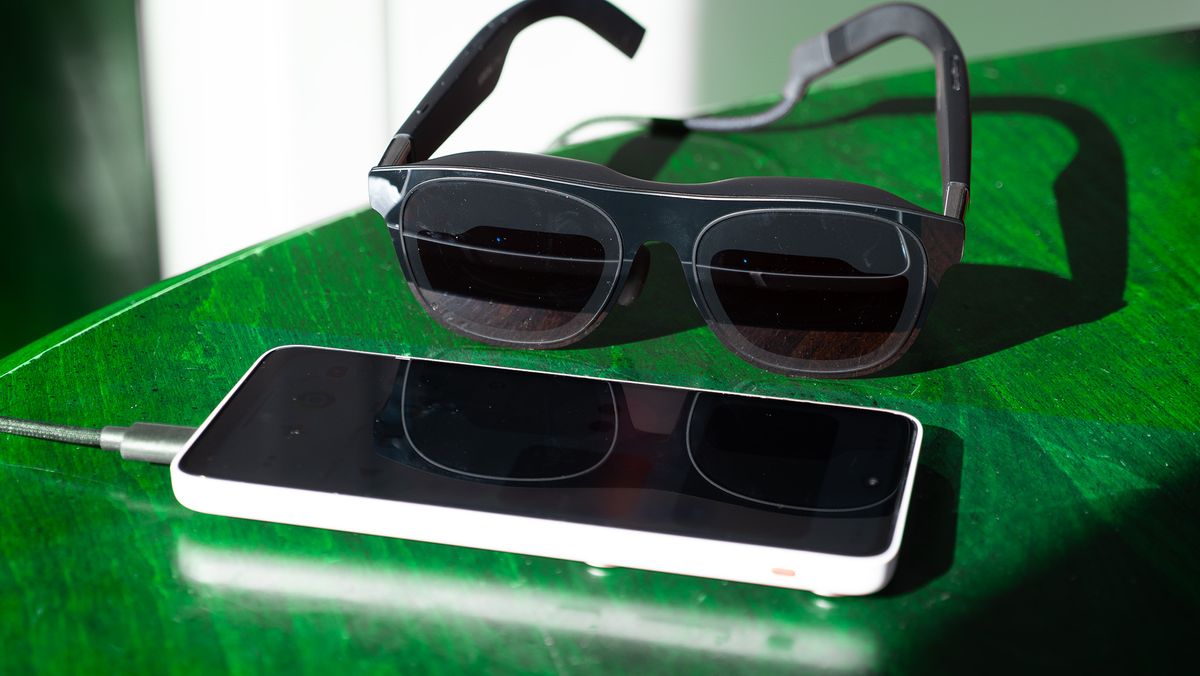Introduction
Xiaomi’s watch selection is somewhat complicated, compared to its peers. Xiaomi makes both proprietary OS wearables, like the Watch S3 and Smart Band 8 Pro, but also full-fledged Wear OS watches, like the Watch 2 Pro, and the hero of our review today – the Watch 2.
So what does the Xiaomi Watch 2 lack compared to its Pro sibling that we reviewed in October? The most obvious downgrade is the aluminum casing, which at 36.8 grams is lighter than the 54.5-gram stainless steel case of the Watch 2 Pro. The Pro has a push-down-rotating crown to go along with its two buttons, while the Watch 2 only has the buttons. Then there’s the included strap itself, the non-Pro uses TPU, while the Pro has a fluororubber one that feels more durable. You can get a higher-quality strap for each watch, obviously, and Xiaomi itself offers leather options as well.
Before we move on with the comparisons, a quick unboxing. The Watch 2 ships with its proprietary charging puck and a TPU strap.


Unboxing the Xiaomi Watch 2, strap options
The less obvious changes are the lack of a Bioelectrical impedance analysis sensor, which can track your BMI, bone structure, water, and muscle mass, and the lack of eSIM functionality.
The good thing is, the Watch 2 gives you the same display, the 4nm Snapdragon W5+ Gen 1 SoC, the rare-to-find dual-band L1 + L5 GPS, and plenty of health and fitness tracking options. Let’s dive a bit deeper.
Design and build quality
While the Xiaomi Watch 2 Pro has a raised edge over the glass dial, the Watch 2 has an exposed, nearly flat dial. It’s ever so slightly curved at the edges.
The display underneath isn’t an edge-to-edge unit, there is a bezel around it, under the glass cover with 12 hour markers. The dial is always black, but you can have the Watch 2 in either Black or Silver.

Xiaomi went with a matte watch case with two lugs on either side, 22mm apart. There are no design elements protruding from either side of the circular case – you have two buttons on the right side, which sit very flush with the body. While on the Pro, the rotating crown button stood out quite a bit, and some might say added a bit of design flair.

Those same people might find the Watch 2 is too simple and it’s true that there’s hardly any character to this watch.
Xiaomi makes up for this with a healthy selection of watch faces in the Mi Fitness app. While on that subject, it’s a bit strange that a company that very deliberately moved away from the Mi branding in favor of the Xiaomi branding has neglected to change it for its premier Android fitness app.

Xiaomi Watch 2 has an excellent 1.43-inch AMOLED display with a 466x466px resolution and 600 nits of maximum brightness. It’s easily bright enough on sunny days and has a responsive auto brightness mode indoors. There’s also always-on-display support.

The two buttons on the side of the Watch 2 are all you get for navigation. Press the top button once to go back from any app or screen, or go to the apps list if you are looking at the watch face. Press twice for recent apps, while a press and hold will open up the Google Assistant.
Pressing the lower button once opens the most recent app, while a double press brings up Google Wallet. The lack of a crown means you’ll also need to swipe up and down on the display to get around.

The band that comes with the Xiaomi Watch 2 is made of grippy TPU material. You get a black or a white one, depending on the watch you’ve bought. It’s a standard 22mm strap with easy-to-remove lug nuts with a slider on one side. We like standard straps and commend Xiaomi for sticking with the more appropriate 22mm for the 47.5mm-wide Watch 2.
The vibration motor of the Watch 2 is very strong, and seemingly the same as on the Pro. That’s both a positive and a negative – it’s a bit jarring at times, especially for the wake-up alarm. We’d love a granular slider to control the strength of the vibration.
The Xiaomi Watch 2 is simple, lightweight, and easy on the eyes. It’s a good choice for those who want an unobtrusive watch on their wrist 24/7 – all day, and while asleep.
Wear OS
Like the Pro, the Xiaomi Watch 2 runs Wear OS 3.5 – the now-older version of Google’s watch software. At the time of writing, only Google’s Pixel Watch 1 and 2, OnePlus’s Watch 2, and Samsung’s Galaxy Watch4, 5, 5 Pro, and 6 run Wear OS 4. There’s no word if and when the Watch 2 will get an update to Wear OS 4, but it’s certain that the Snapdragon W5+ Gen 1 supports it.

Being a Wear OS watch, even if running a slightly outdated version, gives the Xiaomi Watch 2 access to Google’s full suite of apps – YouTube, Google Maps, Google Pay, as well as popular choices like Spotify, Facer and Todoist.
You also get Google Assistant with voice or button activation. This is the complete Assistant experience – you can ask the Assistant anything, turn on the flashlight and ring your phone.
Controlling the Xiaomi Watch 2 is simple enough. A swipe from the bottom of the screen opens up the toggles menu, while a swipe from the top brings down the notifications shade. Notifications are a mixed bag, as on any other Wear OS watch. If you get an image from WhatsApp or Viber, you’ll see the image, but get one from Messenger, and you’ll just get a text bubble called Photo.
You can customize which apps get through to the watch easily enough from the phone. To answer on the watch, you can send an emoji, like a message, send a voice message, and even type a response on a tiny QWERTY keyboard right there on your wrist.
Google Wallet supports Google Pay and it works perfectly on the Watch 2. However, having Google Pay requires you to lock the watch with a PIN. The watch is smart enough to only ask for the PIN once and then stay unlocked as long as it’s on your wrist. Remove it, however, and you’ll need to unlock the watch each time its screen turns off.
Among the more interesting preloaded apps is the Pressure & Elevation app, which provides just that – the air pressure in hPa, and the elevation in meters. You also get a minimum and maximum range for the day.


Barometer and altimeter
There’s also a barebones compass app.

Fitness and health tracking
The Xiaomi Watch 2 is packed with fitness and health tracking features. It supports over 150 sports modes, some with detailed analysis and coaching tips. The dual-band GPS uses both the wider L1 and the faster and more accurate L5 band to provide tracking accuracy within a meter.
We tested the GPS thoroughly and found it to perform on par with the Xiaomi Watch 2 Pro. It takes 30 seconds to a minute to lock on (longer if you’re under tree cover in a forest). We did some meticulous testing of the GPS – we ran to see how accurately it measured our speed, then abruptly stopped to see how fast it recognized we’d stopped moving. It was very quick to register all changes. Then we checked our movements on the map and found the Watch 2 to be very accurate.
The watch is also 5ATM water-resistant so it is fine for swimming.

Fitness tracking is a bit rudimentary, but that’s true of most smartwatches. There are a myriad of sports and fitness tracking modes but we found no discernable difference between Freestyle training and Football tracking – both simply measure your heart rate throughout, give you a rundown of your average HT, your min and max, and then calculate your expended calories based off of those numbers.

Outdoor running is more detailed – you get distance, the time, the pace, elevation data, and your VO₂ max time.


The workout screen
Sleep tracking is nicely detailed. The watch monitors your sleep cycles – Deep, Light, REM – and gives you a breakdown of your waking time. All of these are highlighted with additional information – whether your deep sleep is enough, whether your light sleep or wakefulness is too high. The watch will supplement the tracking with breathing data and blood oxygen during the night.


Sleep tracking
There’s also in-depth menstrual cycle tracking, all-day blood oxygen monitoring, and breathing exercises.
We could debate whether this smartwatch (or any other mainstream one, for that matter) is accurate enough at its size to compete with professional fitness and health tracking tools. But the idea is to pack as much helpful data into as pretty and functional a package as possible.
Battery life
Like the Watch 2 Pro, the Watch 2 has a sizeable 495mAh battery. That’s 70mAh more than the Galaxy Watch6 Classic. To get more than the Watch 2, you’d need to look at last year’s Galaxy Watch5 Pro (590mAh), the OnePlus Watch 2 (with a 500mAh battery), or the TicWatch 5 Pro and its behemoth 628mAh unit.
Still, Xiaomi claims up to 65 hours of runtime from the Watch 2 – that’s nearly three days. We didn’t get that much, but we also used the watch for constant heart rate monitoring, one to two daily training sessions, and all-night sleep tracking. With that tedious regimen, the Watch 2 managed around 30 hours. Omitting the workouts helped us get two full days.

Obviously those numbers are way shorter than what proprietary OS watches do (like the Huawei Watch GT 4 or Xiaomi’s own Watch S3) or those with a second monochrome display for always-on purposes (like the TicWatch 5 Pro).
Charging is done through Xiaomi’s proprietary puck. It has two pins that you need to align to the watch correctly, otherwise the watch would sit awkwardly on the puck and not charge. It’s not nearly as convenient as Samsung and Huawei’s chargers, which are indifferent to the placement you choose. At this point, watches should just use the wireless charging standard and call it a day – EU, let’s make it happen.
Conclusion
Xiaomi’s Wear OS two-punch is now complete. The Pro is an all-round, no-compromises watch, while the Watch 2 is everything you’d ever need, most of what anyone could ever want, at a price everyone would find reasonable.
Some might insist on the Bioelectrical impedance sensor, or on an eSIM, but we are certainly they won’t be many. What we miss more is the rotating crown, as seen on the Watch 2 Pro because without it, we find the Watch 2 far too simple-looking.
That’s no bad thing for the minimalists out there, looking for a simple and effective smartwatch. They needn’t look further than the Xiaomi Watch 2.

















.jpg?itok=F2C4uk0x)



Discussion about this post